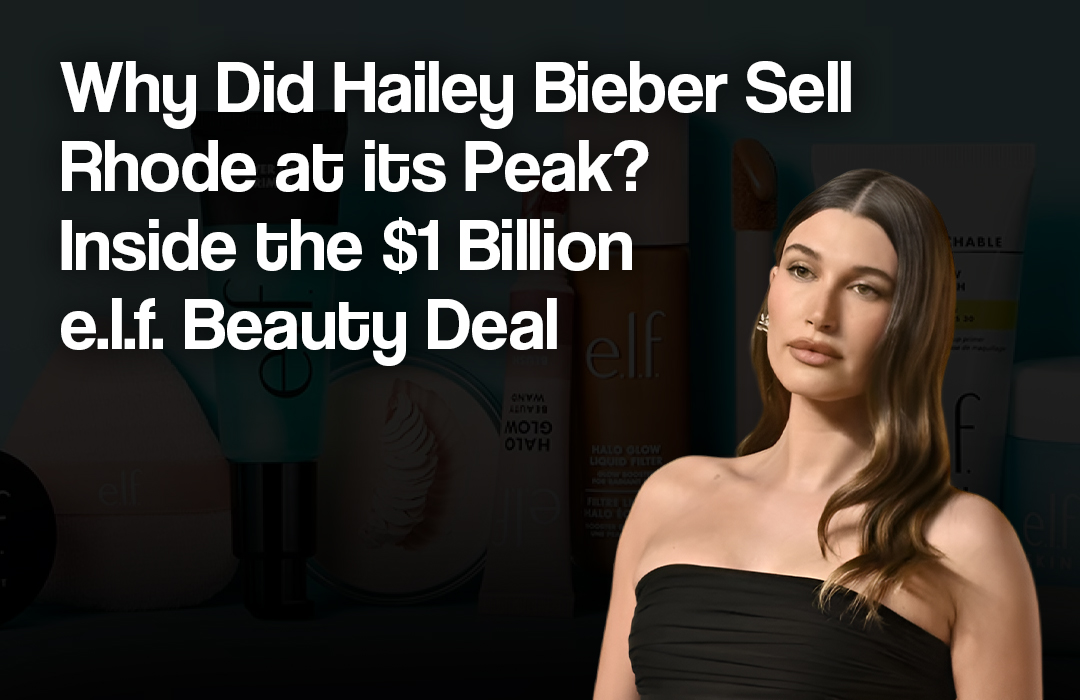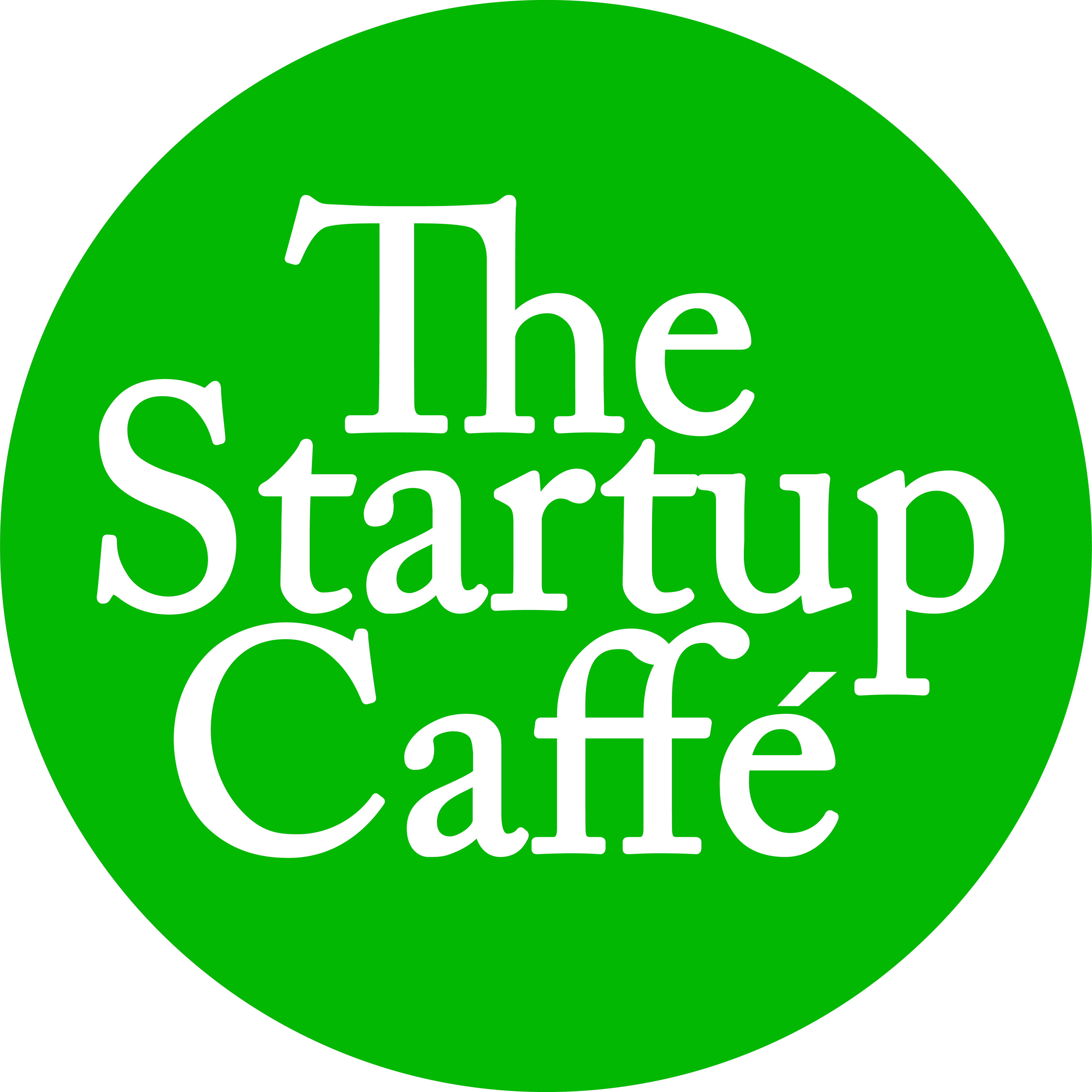Thestartupcaffe – PR, Social Media & Podcast Platform for Startups
Why Did Hailey Bieber Sell Rhode at Its Peak? Inside the $1 Billion e.l.f. Beauty Deal

The global beauty industry just witnessed one of its most headline-grabbing deals of the year. In a bold strategic move, e.l.f. Beauty has announced the acquisition of Rhode, the skincare brand founded by Hailey Bieber, in an all-stock deal valued at $1 billion. This transaction is not only a significant financial development but also a crucial signal of where the beauty-tech and celebrity-led D2C market is headed.
The beauty world was stunned when Hailey Bieber sold Rhode, her minimalist skincare line, at the height of its popularity. The brand was thriving, products were selling out, and its cultural relevance was only deepening. So why would a founder walk away now? The answer lies in one of the most significant business moves of the year. e.l.f. Beauty, a legacy name in affordable cosmetics, acquired Rhode in a landmark all-stock deal valued at $1 billion.
From product innovation to influencer-led brand strategies, this acquisition encapsulates the future of consumer-focused beauty businesses in a digital-first economy.
This was not just a business decision—it was a glimpse into the future of beauty-tech, influencer commerce, and scalable digital-first brands.
Understanding the Deal That Redefined Market Strategy
Launched in 2022, Rhode carved out its niche with a clean, effective, and socially driven skincare philosophy. With a powerful Gen Z connection and a brand language that prioritized transparency, Rhode quickly became a cult favorite. e.l.f. Beauty’s acquisition is a strategic investment in Rhode’s scalability.
Unlike traditional takeovers, this deal allows Rhode to maintain its independent operations by being the Chief Creative Head and Head of Innovation of Rhodes while tapping into e.l.f. ‘s mature retail and logistics ecosystem that will manage the heavy tasks for mass distribution. It is a smart merger of legacy infrastructure and youth-driven market insight.
Billion dollar beauty: Inside e.l.f.’s deal with Rhode by Hailey Bieber
For e.l.f. Beauty, the acquisition of Rhode aligns with its long-term strategy of capitalizing on digitally native consumer brands. e.l.f. has built a reputation for affordable yet high-performance cosmetics, and Rhode’s entry offers it a deeper stake in the high-margin skincare segment.
By acquiring a brand with deep social currency and a loyal following, e.l.f. is essentially buying cultural equity as much as it is buying product lines. Hailey Bieber’s global influence, combined with a lean direct-to-consumer model, creates an opportunity to optimize for high engagement, faster inventory turnover, and increased market share in North America and globally.
Rhode’s Traction and the Power of Celebrity-Driven D2C
In just under three years, Rhode established itself as a dominant player in the celebrity beauty brand arena. It joins the ranks of Fenty Beauty and Rare Beauty, but with a unique positioning that emphasizes skin health over cosmetic coverage. Its viral success can be credited to several factors:
Hailey Bieber’s loyal digital following created a massive launch buzz.
The brand’s visual identity and customer experience were built around millennial and Gen Z design languages.
Strategic restocks and controlled inventory created hype cycles akin to streetwear brands.
With this acquisition, e.l.f. is essentially absorbing not just a business, but an entire aesthetic and community, which is invaluable in today’s consumer markets where connection often trumps convenience.
Lessons for Emerging Beauty Startups and Investors
This deal sets a precedent for emerging beauty brands looking to scale. It proves that authenticity, product performance, and brand resonance can drive rapid valuations. More importantly, it demonstrates how celebrity-backed ventures, when executed with operational clarity and strong storytelling, can evolve into highly sought-after business assets.
Startups in the D2C beauty space must now think beyond vanity metrics. Building brand ecosystems that integrate community, product innovation, and cultural relevance is essential. Investors and acquirers are paying attention to brands that balance viral appeal with long-term retention strategies.
What This Signals for the Future of Beauty-Tech
Rhode’s acquisition is also a case study in beauty-tech integration. The brand’s rise was fueled by data-driven launches, influencer content cycles, and micro-community engagement. As e.l.f. integrates Rhode, it is expected that backend operations, supply chain agility, and global e-commerce pipelines will become even more streamlined.
The move also reflects how legacy beauty players are evolving into platform companies, acquiring fast-scaling digital brands to remain relevant in a rapidly shifting landscape. We can expect more acquisitions where content, commerce, and community intersect to form powerful growth loops.
Final Thoughts
Hailey Bieber’s decision to sell Rhode at its peak marks a shift in how modern founders think about scale, exit, and brand legacy. It also underscores a new era for the beauty industry—one where social relevance and operational excellence go hand-in-hand. The $1 billion valuation is not just a reflection of sales; it is a reflection of influence, potential, and precision brand-building. For startups, this is a wake-up call. Build with purpose, scale with strategy, and understand that today’s consumer buys into stories as much as they do products.
Stay with Startup Caffe for deeper dives into the world of business innovation, founder journeys, funding trends, and high-impact deals. This is where the next billion-dollar brand begins.






